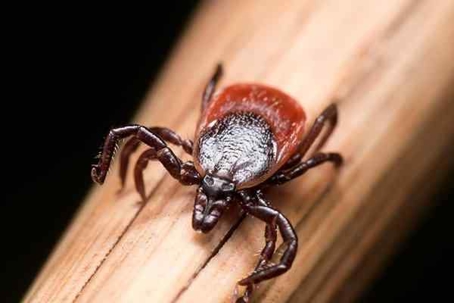Tick Prevention Tips For Pearland Residents
Ticks are tiny little creatures that can cause a range of issues, from simply being an annoyance to causing serious illness. The problem is, there is no real way to identify which ticks are carrying diseases and which are harmless, so it’s important to avoid getting bit by them at all. Tick prevention and control is key to protecting your family from the harmful dangers of tick-borne illness.
Most people know that ticks can carry Lyme disease, which can cause fever, headaches, and fatigue, and if left untreated can lead to chronic joint pain and other ailments. However, ticks can carry other diseases as well, including Rocky Mountain spotted fever, Tularemia, and tick-borne relapsing fever to name a few. Ticks are also known to cause other rashes and fever-related illness as well.
There are several types of ticks in Houston that are common in Pearland:
Lone Star Tick
Named as such for the spot on the female's back, this species is typically brown in color. They are about 1/8 of an inch in size, but after a feeding can appear a bit larger and take on a grayish color.
Black-Legged Tick
More familiarly known as a deer tick, this tick is the type most likely to carry Lyme disease. They can be as small as a poppy seed, but when engorged after a meal can be as large as a pencil eraser. They have an oval shape and an orangish brown to rust color.
American Dog Tick
The name American dog tick is a bit misleading as it feeds on all sorts of animals and humans, not just dogs. This type of tick often carries Rocky Mountain spotted fever, is brown with white or yellowish marks and streaks, and can range from 1/8 to 1/2 inch in size.
Brown Dog Tick
Brown dog ticks prefer dogs to host upon, but when hungry will feed on other animals and occasionally humans. These too can transmit Rocky Mountain spotted fever and have a brownish red color except after feeding when they look greyish blue.
Do Ticks In Greater Houston Carry Lyme Disease?
One of the most feared pests around Houston is the tick, and with good reason. These sneaky parasites travel around the area by way of hosts, which can come in the form of wildlife, family pets, and people. Because they’re parasites, it means that ticks feed off of blood and can transmit harmful pathogens while they do so. With ticks, it’s important to note that certain species have the potential to spread certain pathogens, but not every tick in that species will be a carrier of those issues. The main concern for ticks in Texas is Rocky Mountain spotted fever, not Lyme disease, which comes from the brown dog tick. There may be some black-legged ticks that can spread Lyme disease, but that’s far less common.
At Modern Pest Control, we provide seasonal support against ticks. Our skilled technicians are backed by more than 70 years of experience and extensive training. We utilize environmentally conscious treatments and are always exceptionally detailed in our work. For more information on our tick control services, please call us today.
How Can I Protect Myself From Ticks?
There are several things you can do to prevent your family from getting ticks. Around your own Pearland home, you can keep your grass cut short, trim back bushes and shrubbery, and clean up yard debris. Eliminate food sources in your yard that would attract deer and other woodland animals. If you keep animals or fowl, guinea hens are fantastic additions to your flock for eating ticks.
When going outside, especially in tall grass or wooded areas, wear long pants tucked into your socks to prevent ticks from crawling inside your pant legs. After being outside, be sure to do a thorough tick check including between toes, under armpits, behind ears, and in the hair. Also, check animals who can get bit by ticks but who can also carry ticks into your home on their fur.
Give the pest control professionals at Modern Pest Control a call today to discuss how we can help limit your exposure to these dangerous pests.

